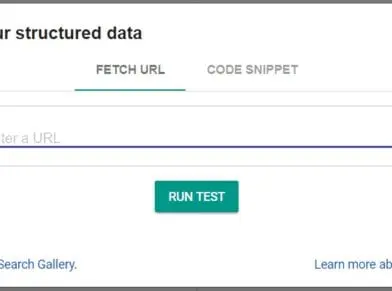REMOVING CONTENT FROM GOOGLE

One piece of online reputation management is removing defamatory content from Google. Kenton J. Hutcherson principal attorney Hutcherson Law talks about removing content form Google with a Court Order. Also you can report other types of content that you would like removed, copyright, personal information and the like.
Hutcherson Law specializes in Internet Law
Transcription
Eric: Hi, this is Eric with Globe Runner SEO and today I’m with Kenton Hutcherson with Hutchersonlaw.com. Kenton is fantastic. We just had the pleasure of listening to him speak at DFWSEM. He talked about a lot of really interesting things. He talked about how companies can be harmed by information that’s posted by anonymous users on websites like the Ripoff Report. It was really fascinating stuff. And as a company, sometimes we help clients manage their reputation. Kenton, can you give me a little more insight into that that my clients might be interested in on how they can protect their reputation online?Kenton Hutcherson: Sure, absolutely. One of the key things, one of the most effective things that I’ve found out in terms of my work as an Internet attorney is if I can get a court judgment, a court order saying that a certain posting on a website is false and defamatory, I can take that judgment to Google, and Google now actually has a portal on their website where you can upload that court order. They will honor that, actually remove that link from their search index.
Eric: Wow, wow. That’s really big. But you can’t just go to Google and say, “This guy said something nasty about me.”
Kenton: Right. I’ve had a lot of clients that have tried to do that. And there’s a lot of frustration out there because people are like, “Look, it’s destroyed my business. These things are just blatant lies.”Eric: Right.
Kenton: And Google’s position, I mean I can’t speak for Google but my impression is that they’re not the Internet police. They don’t want to get involved between a speech screen two people about what’s true and what’s not. And so they need something to hang their hat on for them to take action. And it seems to me that they’ve made the decision to defer to the courts, which is what we have to validate these types of issues in our society. And so as long as you have a court that’s already made that judgment for you, Google will honor that.
Eric: So another question that I think clients may have is how do I sue somebody, how do I get a court order when the Internet is such an anonymous place and I can’t put my finger on who it is that made that statement on some random website? I can’t sue the website, you know? I would like to sue the website but they didn’t say it. I’ve got to find that guy, right?
Kenton: A lot of times, yes. There are three options. Number one, a lot of people that have been defamed have a pretty good idea of who defamed them.
Eric: OK.
Kenton: They may have one client that was really unhappy and they’ve already complained. Maybe they have a disgruntled former employee. Maybe they know a competitor that’s doing some things that they shouldn’t be doing. In those cases, a lot of times we’ll file a lawsuit against who we think it is and then in the discovery we can ask them in a deposition under oath whether or not they’re the ones that posted it. We can get computer records about what their activity was. You can also issue a subpoena to the website to verify who it might be.
The second one is to file a John Doe lawsuit and then issue a subpoena to the website to obtain the identifying information and get the IP address, and get the name they used when they logged in. About 50 50, 50 percent of the time that will actually lead you to the actual person.
Eric: OK.
Kenton: A lot of times it doesn’t take you anywhere. Maybe they logged in at a Starbucks cafe.
Eric: Right.
Kenton: Right, where it’s impossible to trace who the actual IP address went to. The third thing you can do if none of those options work, you can file a lawsuit against the name that they used in the posting, the street name. And in that case what you need to do, depending on the local court rules, you can serve them by publication which is where the court gives you the authorization to post a legal notice in the newspaper where the court is located for a certain period of time. And then after a certain period of time in that publication, they are deemed to have been served in a lawsuit.
And so theoretically, they’re going to get notice, they’re going to file, they’re going to defend themselves and the lawsuit will go on as it should. In a lot of cases they don’t show up and so you then essentially win by default.
Eric: Right. So even if you never find the guy, it doesn’t matter. You can get a court order, file that with Google and get the…
Kenton: Well, potentially. Of course you have to have a good faith pleading, you have to prove to the court that you actually have a legitimate defamation claim. But there certainly are options out there if you can’t find the person who made the posting.
Eric: Wow, fantastic. Well, I think that’s some really great information. And you could get really hit hard. If somebody online complains about your company, it can really hurt your reputation. And once you lose it, it’s so hard to get back. It’s great that we have guys like Ken that can help us with these really challenging situations and potentially lose millions of dollars to businesses. And now we have a way that we could recover our reputation if something like that happened to one of our clients or to anybody that we knew. I really appreciate your time, Ken.
Kenton: My pleasure.
Eric: This has been great. Thank you very much.
Kenton: Thank you.



















